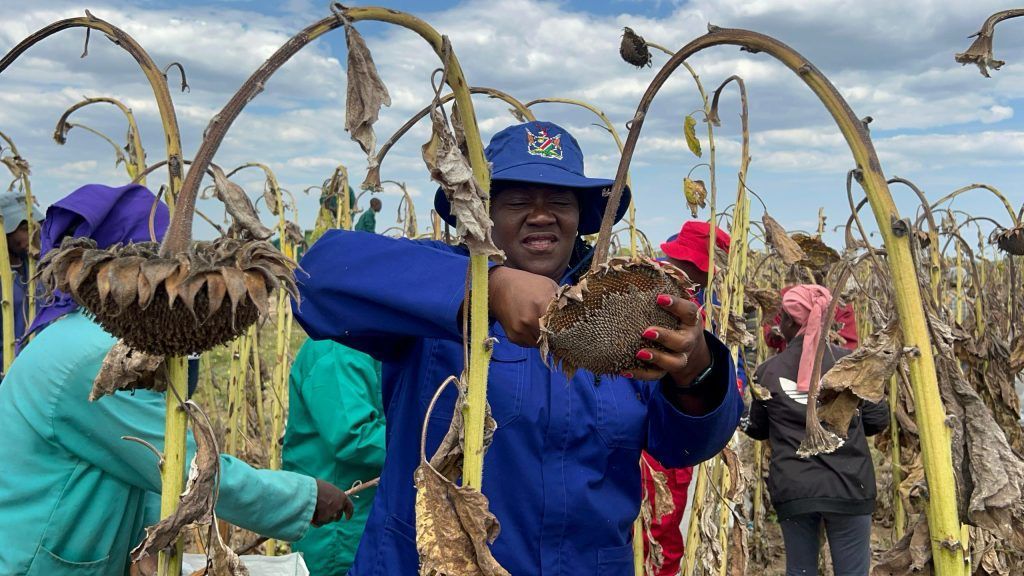Agriculture expert Dobson Kawala says Namibia should prioritise sunflower oil production to boost food security, reduce imports, and support poultry farming through green scheme investments.
Speaking to Desert FM on Wednesday, he emphasised the importance of reviving the Shadikongoro Sunflower Oil Press, saying Africa should focus on being producers.
“It will help the importation of cooking oil outside Namibia, because the value adding we are talking about is turning the sunflower nuts into cooking oil, and also to use them for poultry feed.”
This follows president Netumbo Nandi-Ndaitwah’s announcement of a plan to pump N$85 billion into green schemes by allocating 130 000ha of farmland in Namibia’s north-eastern regions to these schemes.
Kawala said sufficient land is needed to continuously produce sunflower oil and poultry feed as a byproduct for raising chickens and other farm birds.
“The basics are already in place at Rundu. Cooking oil is already in production, and with the right support, we can expand,” he said.
He said Rundu has a vocational school focused on farm machinery and crop management, which could support sunflower production and milling.
The entrepreneur said challenges include adequate infrastructure and well-trained mechanic professionals for maintaining farm equipment.
“You can have only one professional mechanic servicing a farm with hundreds of tractors. For green schemes to succeed, we need at least 10 qualified mechanics per farm,” he said.
He highlighted the need for skilled irrigation specialists in pipe fitting, plumbing, and metalwork to maintain irrigation systems.
Kawala said Namibia has had green schemes since 1998, which were meant to develop skills among young people, but the poor maintenance of farm infrastructure remains a stumbling block.
“Green schemes must have on-site garages and warehouses for repairs. Instead, government-owned farm machinery is often serviced by private mechanics outside the farm, which shouldn’t be the case,” he said.
The entrepreneur said the vandalised fences of the Kalimbeza and Katima green schemes are a major challenge.
He believes stronger private sector investment in sunflower oil production would help Namibia achieve food security and could even contribute to global food relief efforts.
“If we invest in the right areas, Namibia could participate in the World Food Programme, supplying food to drought-stricken regions worldwide.”
Stay informed with The Namibian – your source for credible journalism. Get in-depth reporting and opinions for
only N$85 a month. Invest in journalism, invest in democracy –
Subscribe Now!










